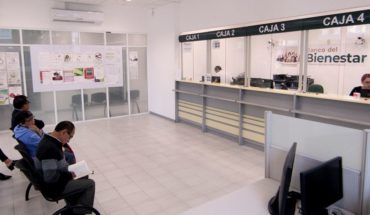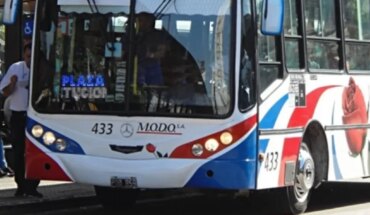Last Friday, January 20, the working group convened by the Ministry General Secretariat of Government, in order to have a general analysis of the media system in Chile and to collect proposals to modernize and democratize communications in the country, delivered its final report with recommendations and, with it, A roadmap that should guide all public policy and laws that will be adopted from now on in the field of communications.
The instance was integrated by academics from three important houses of studies, the universities of Chile, La Serena and La Frontera, who conducted a total of thirteen sessions with group interviews and traveled to different parts of the country gathering opinions and positions of organizations, guilds, entities and people linked to these issues, thereby elaborating this diagnosis of the current situation and the main challenges we face.
The report notes with concern the high concentration of media ownership in the country, the restrictions imposed by current legislation on community media and the inequitable access to the concession system, considering the close link between the quality of democracy and the exercise of freedom of expression. which is strengthened by the multiplicity of media, diversity among them and quality of their broadcasts, as declared by UNESCO.
There is, therefore, no democracy possible without a democratic media system. Nor a democratic system without leveling the playing field between community and commercial media, beyond their reach, even more so when the former play an irreplaceable role for the benefit of the community and their voice needs to be strengthened to strengthen democracy.
In this line, one of the most remarkable and central aspects of the report delivered are the five recommendations made in the section “Community Media”, raising as the first and central point to move forward: the adaptation of the laws that govern the operation of community radio and television stations to international standards of freedom of expression, expand community media’s access to resources that enable sustainability, expand their coverage, and enable their broadcasts in conjunction with other community media.
All these restrictions, such as the ban on advertising, which, during the delivery of the report, Undersecretary Naranjo announced the government would abolish, limit the role and reach of community media and, therefore, their contribution to social welfare and democracy.
Moreover, the current Telecommunications Law 18,168, which corresponds to a decree of the dictatorship, which has not been replaced until today by a democratic communications framework law and containing norms contrary to human rights, was established by Pinochet to imprison and silence radio voices that began to emerge in the populations, and later also used by successive governments against community radios.
That is why the recommendation to repeal Article 36B of said law, which penalizes unlicensed transmission with prison sentences, millionaire fines and seizure of equipment, is a good sign that we are moving towards leaving behind the criminalization of transmission without a concession, the use of criminal tools that international bodies have questioned the Chilean State and a practice that a recent ruling of the Inter-American Court of Human Rights has condemned in the case of Guatemala, being therefore a new regional standard applicable to all states.
This derogation will have an impact on the cessation of harassment and persecution of community media, and to stop calling those who exercise their legitimate right to freedom of expression “pirate radios” without a concession. It is the duty of the State, as administrator of the radio spectrum – a public good and heritage of humanity that belongs to all of us and through which the radio waves circulate, among others – to regularize these broadcasts and guarantee their right of expression.
On the radio spectrum, the report also pronounces, calling on the State to optimize its use, incorporating new TV and radio concessions and mechanisms that protect lucrative companies and models from using the community category, in a clear allusion to the concentration of property that some religious radios have acquired and that they manage impoRtantes resources. Given the need for an adequate and proportional distribution of spectrum use, it is important to remember the historic demand that civil society has been raising for a spectrum audit to be carried out, which allows to effectively know the existing availability and to carry out a better management of this public good and draw up a public policy that promotes the plurality of voices and types of media.
But an adequate technical administration of the spectrum is unofficial, if it is not accompanied by a profound change in the concession system, where at present the preferential right prevails, that is, a concessionaire that comes to renew its license will be awarded the concession over the other bidders automatically, which prevents the arrival of new means of communication. On the other hand, when frequencies become available and there is more than one bidder, the decision of the award is made with a tombola, regardless of the interest of the medium project.
Therefore, the suggestion of the report to incorporate “criteria of social evaluation, cultural relevance and community contribution”, raised by our guild when presenting at the table, aims to reflect plurality not only in the increase in the number of concessions, but also in the diversity of content and proposals, move towards a media pluralism that represents the different sectors of society, communities and peoples that inhabit the national territory.
Finally, knowing the economic reality of the community media, the recommendation in the report that urges the State to “increase, strengthen and improve the funds of economic support and professional training, which allow a permanent accompaniment and support to community media”, a completely urgent support, in a country where citizens clamor for new and better media is valued.
It is to be hoped that the government of Gabriel Boric and, in particular, the Ministry of the General Secretariat of Government, which requested this study, understand the centrality of having in Chile today a modern and democratic media system -plural, decentralized and diverse-, capable of truthfully and timely informing citizens.
Likewise, that the debate on the transformations to the media system should take place within the framework of a permanent working table, which includes the various actors interested in contributing to the process, and not divided by sectors, to jointly lay the foundations for a new democratic Communications Framework Law, discuss reforms to the laws of TV and community radios and the concession system, Discuss and define what is “community”, generate bridges to establish a robust public media system, and consolidate the right to communication, access to universal connectivity, the deconcentration of ownership of the media system and the distribution of the radio spectrum.
To contribute to all these transformations and to contribute with our work to diversify the voices of communications in Chile, we have formed the National Association of Independent and Community Communicators and Media of Chile, ANAMIC A.G., composed of more than 40 associates who want to contribute decisively to the democratization of communications and the strengthening of independent communication, community, and popular in the country.
Follow us on
The content expressed in this opinion column is the sole responsibility of its author, and does not necessarily reflect the editorial line or position of El Mostrador.





